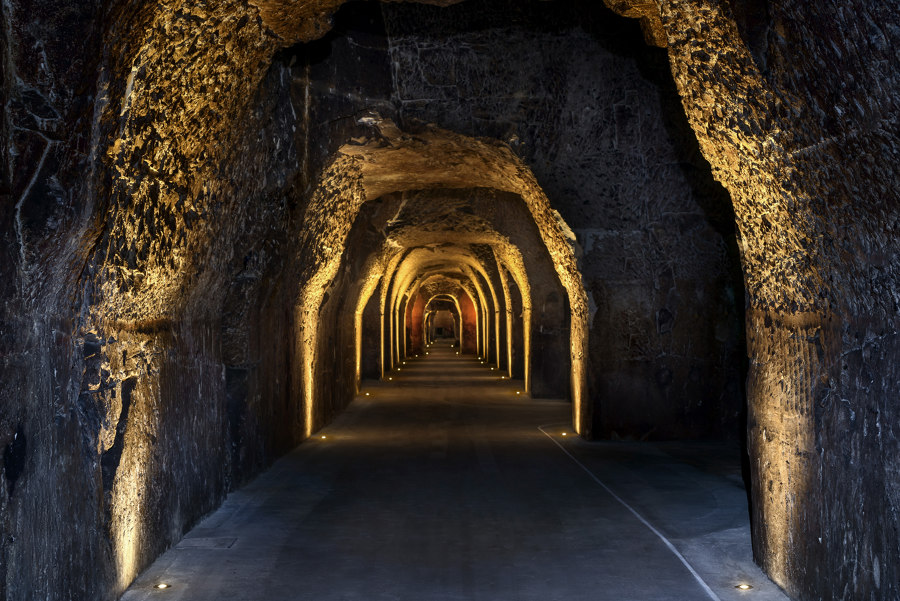
Photographer: François Guillemin
Artisan lighting for the historic Champagne House Joseph Perrier
Châlons-en-Champagne, near Reims in the heart of the historic province of Champagne, is home to the House of Joseph Perrier, a company founded in 1825 and currently run by the sixth generation of the founding family. Joseph Perrier stands for a tradition of Champagne excellence handed down from father to son over the years. The proud holder of many international awards, the House won recognition from the outset when it was chosen as the official supplier to the British monarchy, specifically to Queen Victoria and King Edward VII – hence the Cuvée Royale that still decorates its most characteristic products. The old coaching inn that became the headquarters of Joseph Perrier’s operational activities is surrounded by fertile chalk soils that were once also used for building materials. In fact, the winery’s cellars were dug out of ancient Gallo-Roman chalk pits that supplied the material needed to build the city of Reims. It is in these tunnels that the famous French wine is produced, blended and left to age. There are over three kilometres of twenty-metre-deep tunnels dug out of the chalk hillside and pierced with skylights to provide optimal natural ventilation – the perfect conditions for ageing champagne.
In 2019, the company commissioned an ambitious project. The historic site was completely renovated by Parisian architect Loic Thiénot of Thiénot Architecture, who was also charged with designing new exhibition rooms, a tasting room, the shop, the courtyard redevelopment and offices. At the same time, the lighting was redesigned. The cellars, the new garden and the outdoor spaces all benefited from a metamorphosis that highlights their history to better emphasise their beauty. The Parisian lighting design studio Lumesens, in the person of Emeric Thiénot, was responsible for the lighting project. His main task was to define the design priorities and understand the client’s multiple requirements in terms of differing usage, the company’s heritage, technical constraints, architecture, landscape, and economic and environmental conditions. Thiénot used these parameters, coupled with his own innovative creative energy, to design a sustainable lighting project. The Lumesens studio found the ideal partner in L&L Luce&Light, not only because of the lighting fixtures’ intrinsic characteristics but also because of the company’s willingness to create bespoke solutions. Emeric Thiénot: “As much as possible, we try to use what lighting manufacturers offer us, but we often find ourselves obliged to transform existing equipment, either with new accessories to be integrated into the lighting fixture, or by changing the optics or the source to achieve a particular effect, or by transforming the lighting fixture for a specific application. These transformations should therefore not be viewed as value added to the project but are the purpose and intrinsic qualities of the lighting design.”
The main constraint was to maintain the properties of the champagne stored in the cellars and to avoid “lightstrike”, an olfactory defect caused by the chemical reaction of light on the riboflavin in the wine. To overcome this problem, the lighting designer requested a light colour of 2200K to keep the luminous flux below 595 nm. The LED light of the recessed luminaires in this special colour temperature, Bright 2.4 5W 24Vdc with elliptical optic 13°X52°, invites visitors to wander through the labyrinth of galleries and enjoy a unique and powerful experience. Once their eyes have adapted to the soft, warm light, they are delighted by the plays of light and shadow they discover walking round. Along the way, they encounter light projections reminiscent of water reflections, mysterious silhouettes created by the sharp optics of the Ginko projectors combined with two bespoke optical accessories made by Lumesens.
In one of these, pieces of coloured glass inserted in the snoot, kaleidoscope style, generate striking effects on the floor at the tunnels’ intersections. In the other, small mobile mirrors, hung from the fixtures with nylon threads, reflect the light onto the ceiling in certain cellar areas.
Fundamental to the project’s success is the reliability of the AISI 316L stainless steel lighting fixtures because stainless steel can often deteriorate rapidly in the humidity of the air mixed with the limestone of the cellar walls.
Outside, other Ginko fixtures pick out the majestic wrought iron sign that spans the gate columns at the entrance to the complex. The garden paths are lit by customized versions of Pasito 1.1 8W 2700K 150x90°, finished in white and installed on 600-mm columns. To maintain optical uniformity, the same step lights have been used in the upper and lower parts of the covered walkways, where they illuminate both the ground and the arched ceilings. On the building’s facade, Lyss 1.0 5W 2700K 10°x180° outdoor projectors have been strategically positioned on the outermost edges of the windowsills to create a luminous frame.
The project was awarded the Prix de l’ACEtylène 2020 by the Association des Concepteurs Lumière et Éclairagistes in the category for interior lighting design.
Project
Thiénot Architecture
Light Planning
Lumensens
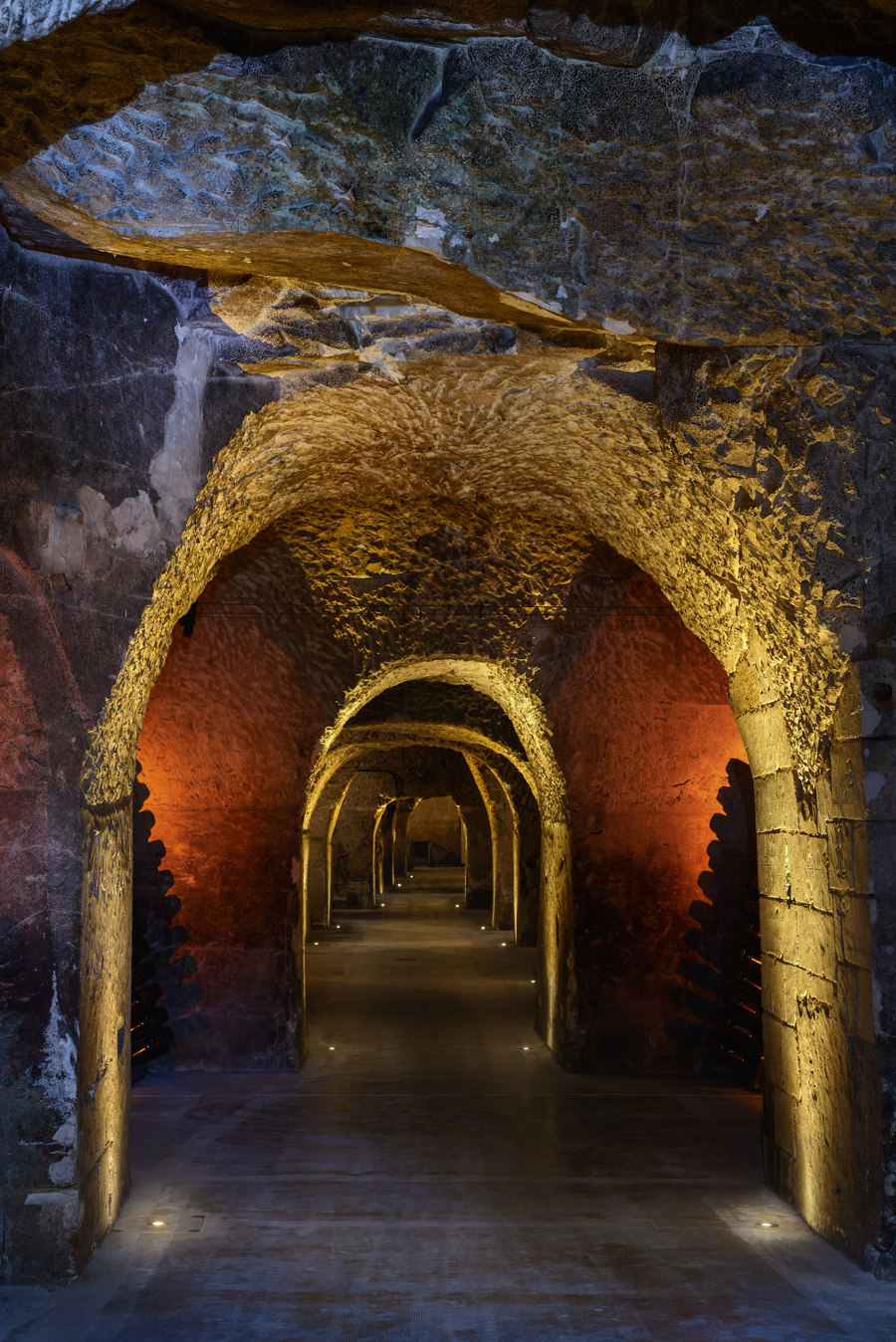
Photographer: François Guillemin
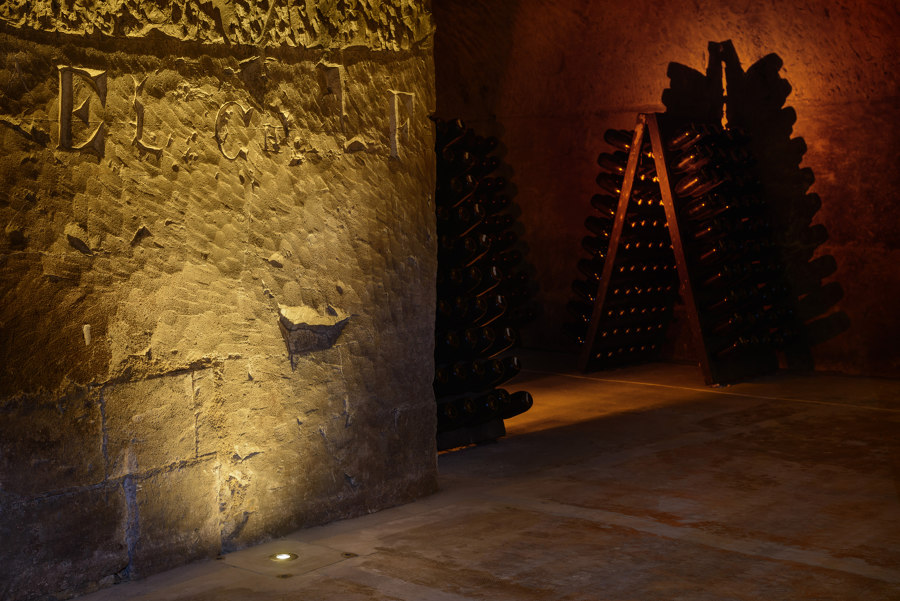
Photographer: François Guillemin
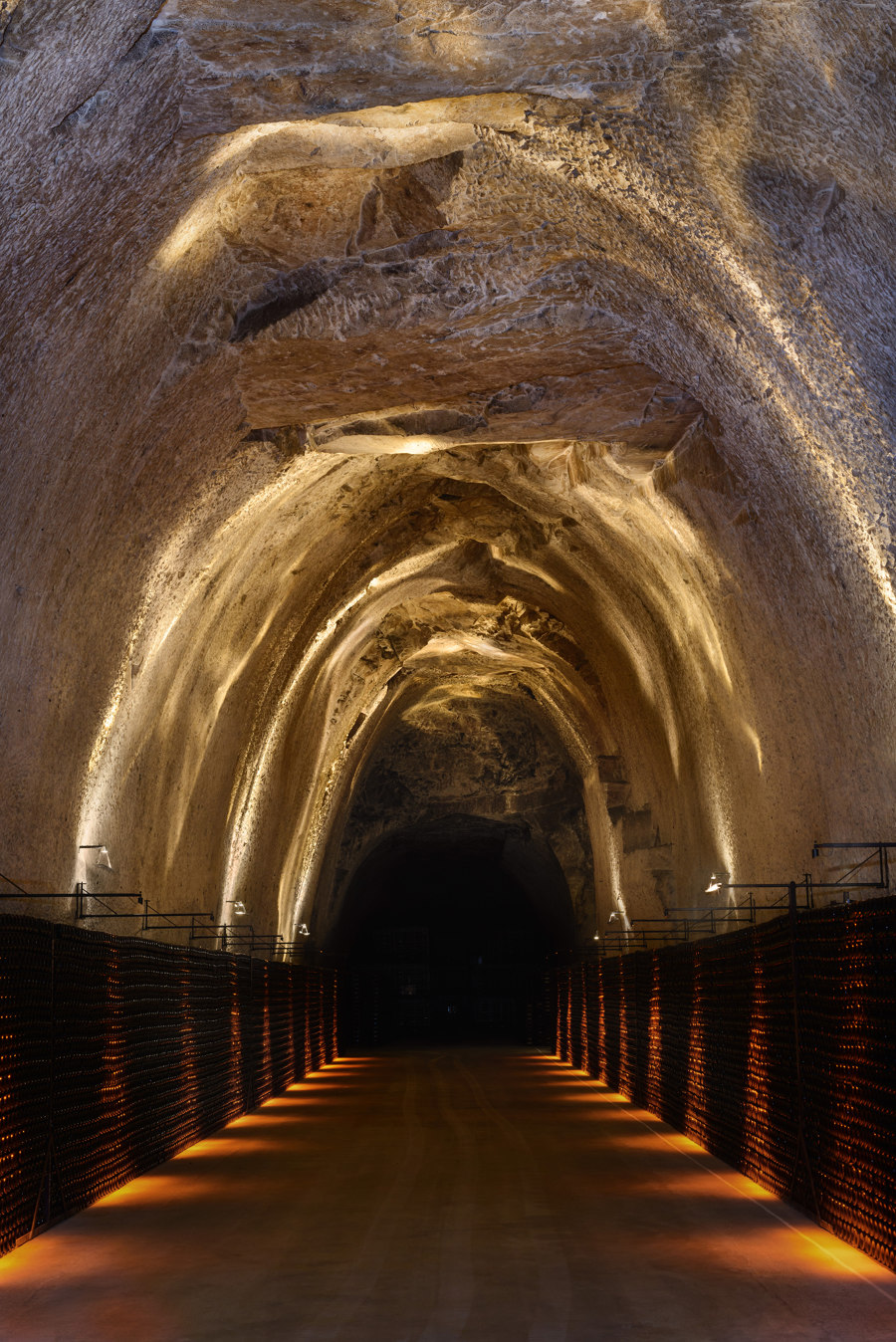
Photographer: François Guillemin
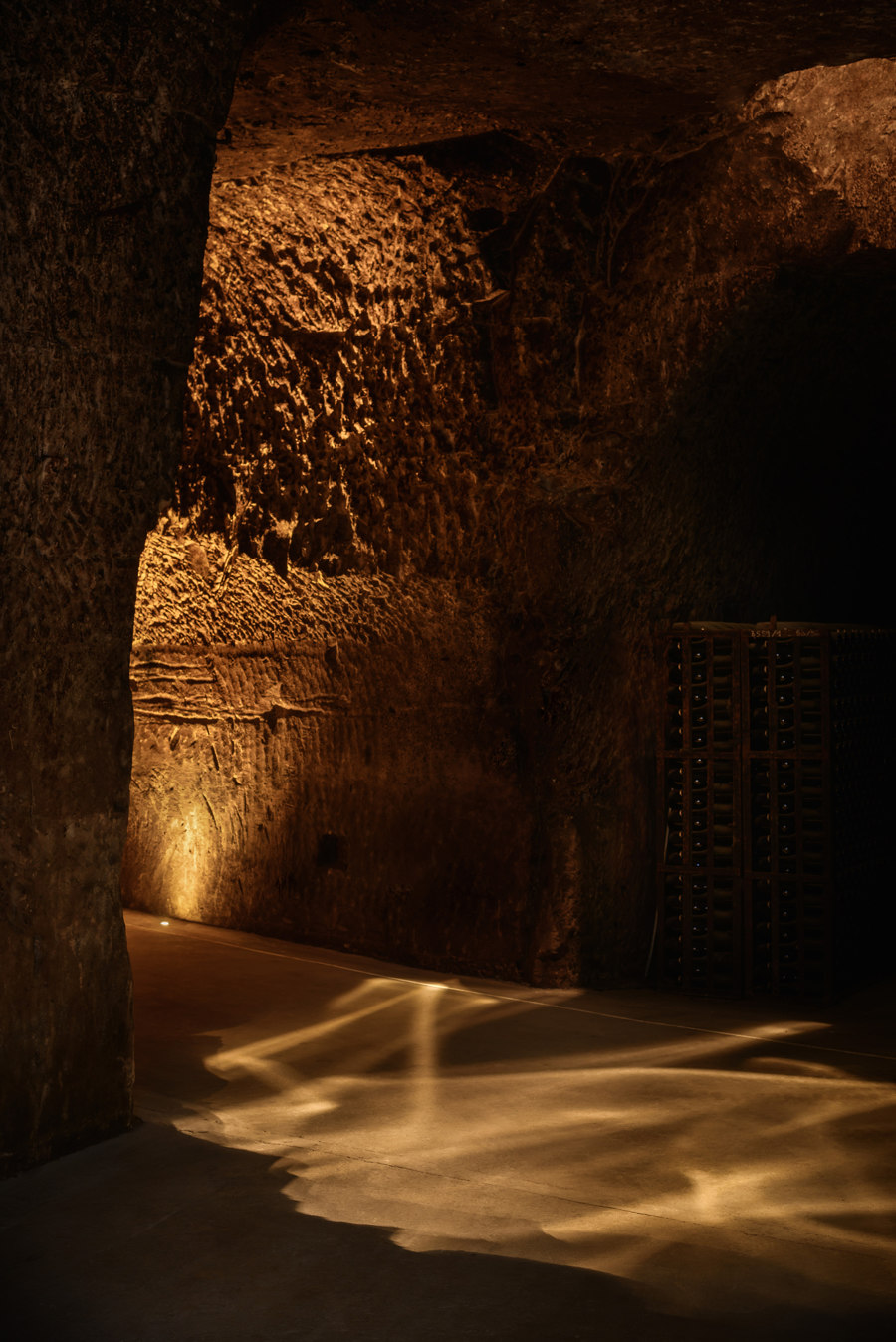
Photographer: François Guillemin
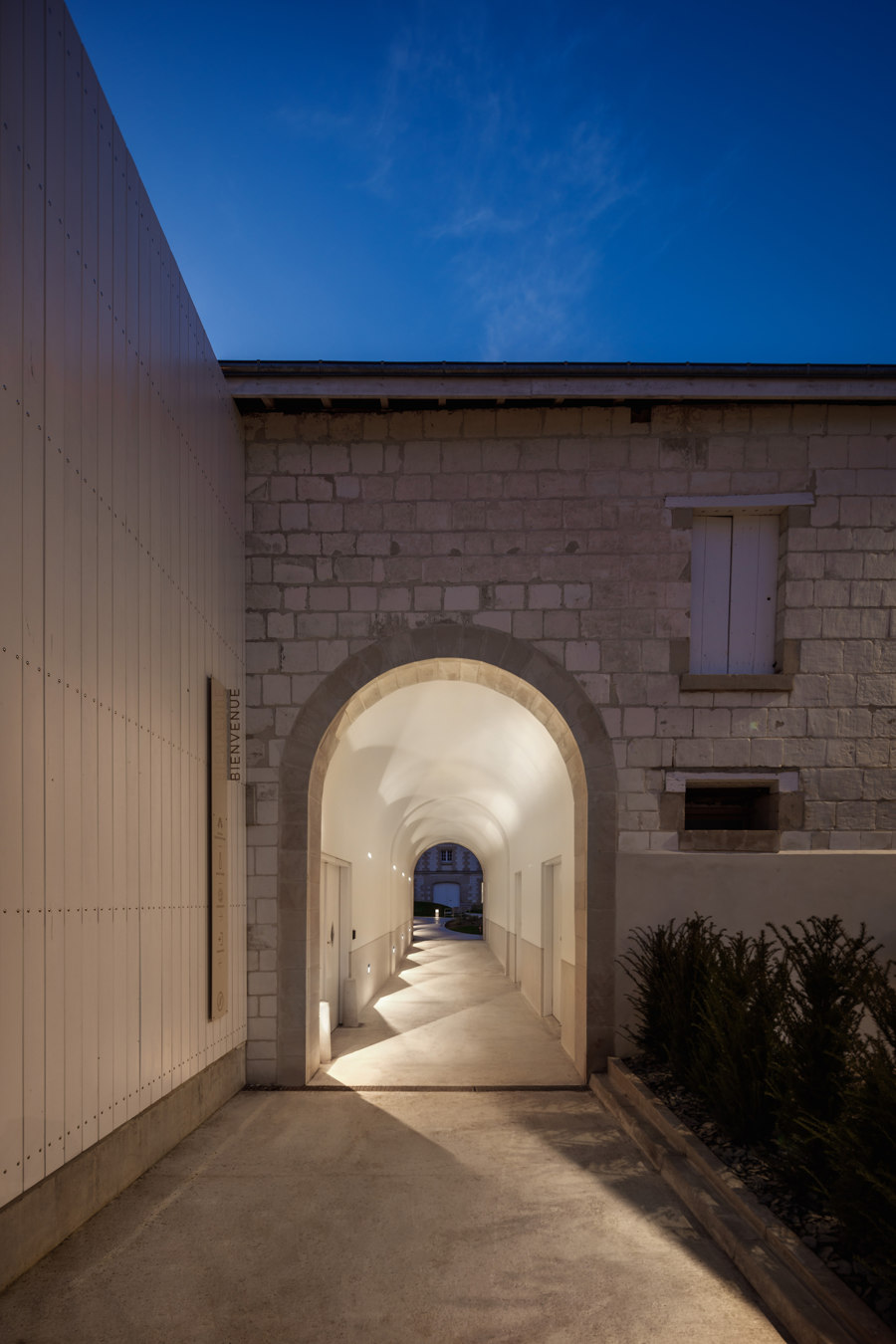
Photographer: François Guillemin
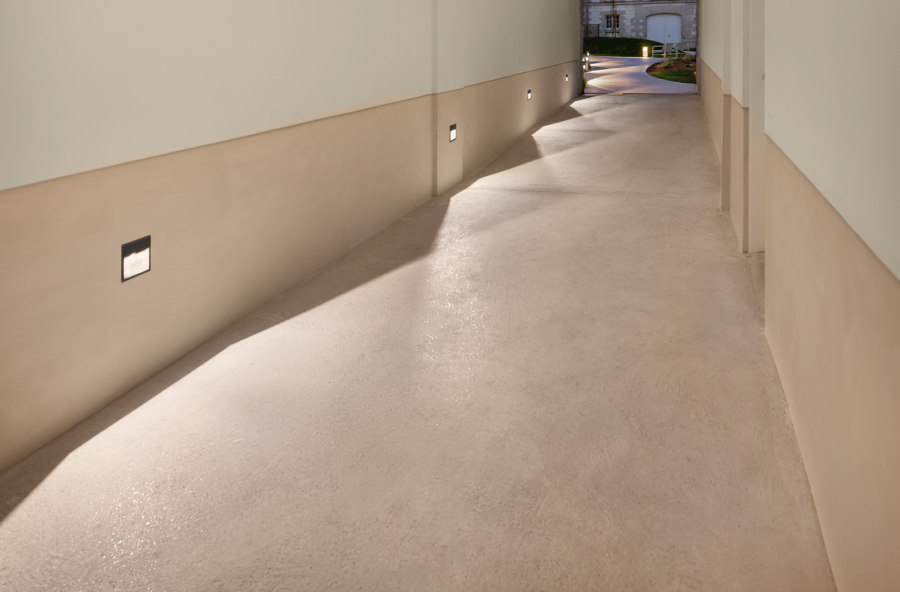
Photographer: François Guillemin
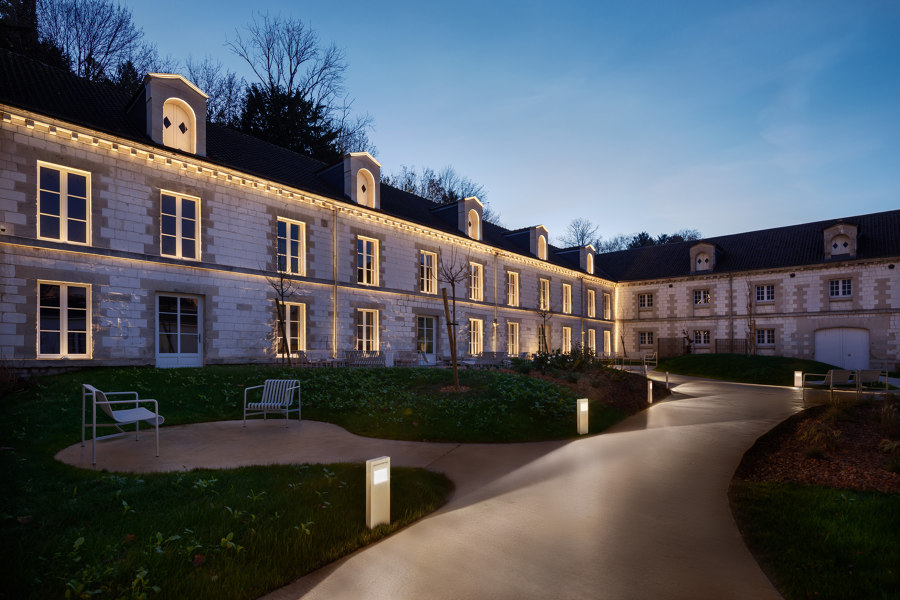
Photographer: François Guillemin
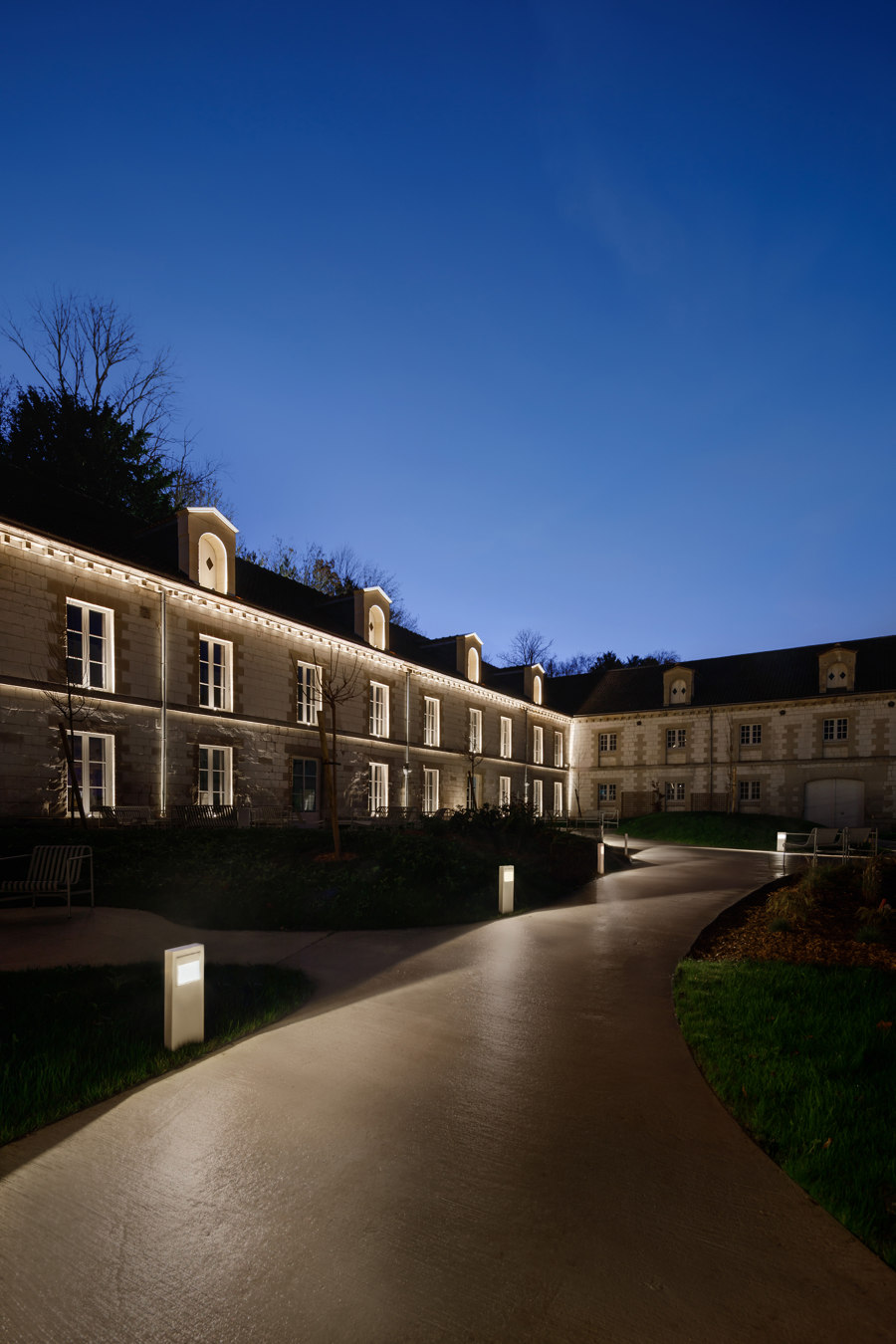
Photographer: François Guillemin
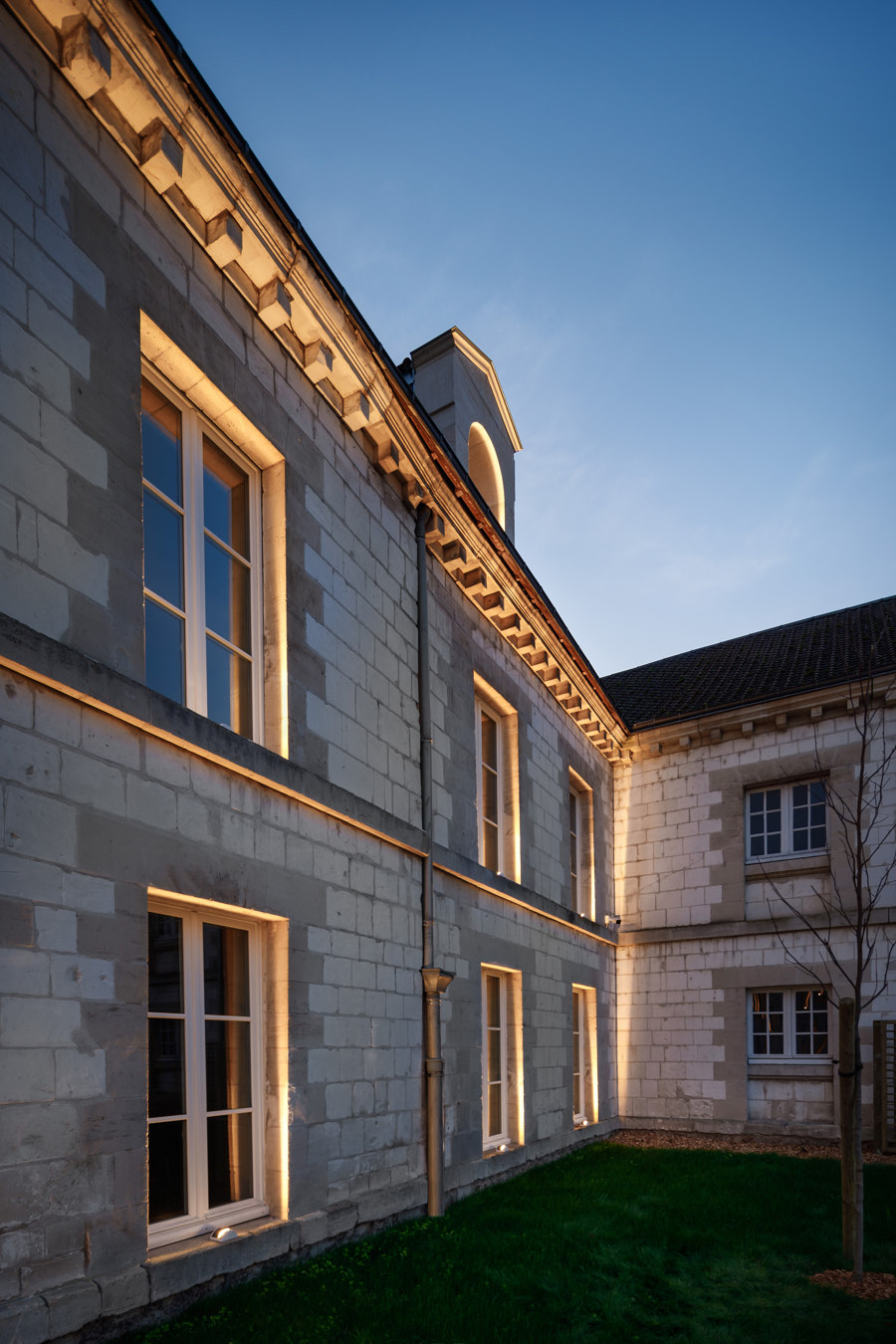
Photographer: François Guillemin
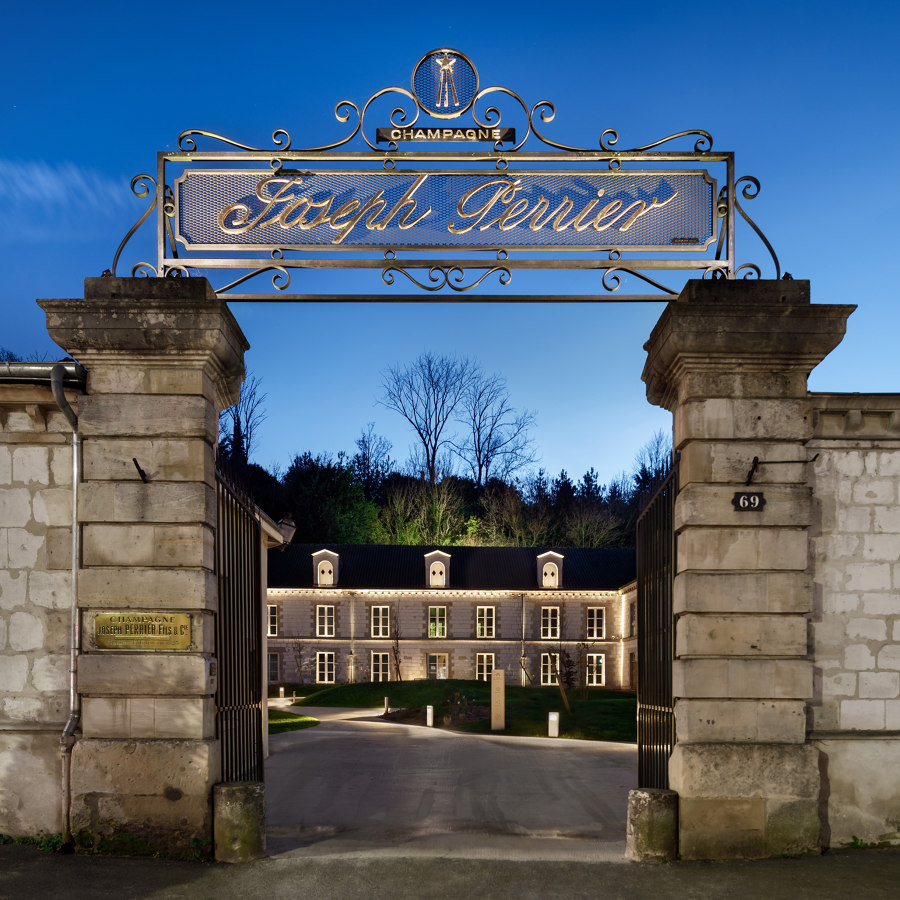
Photographer: François Guillemin











